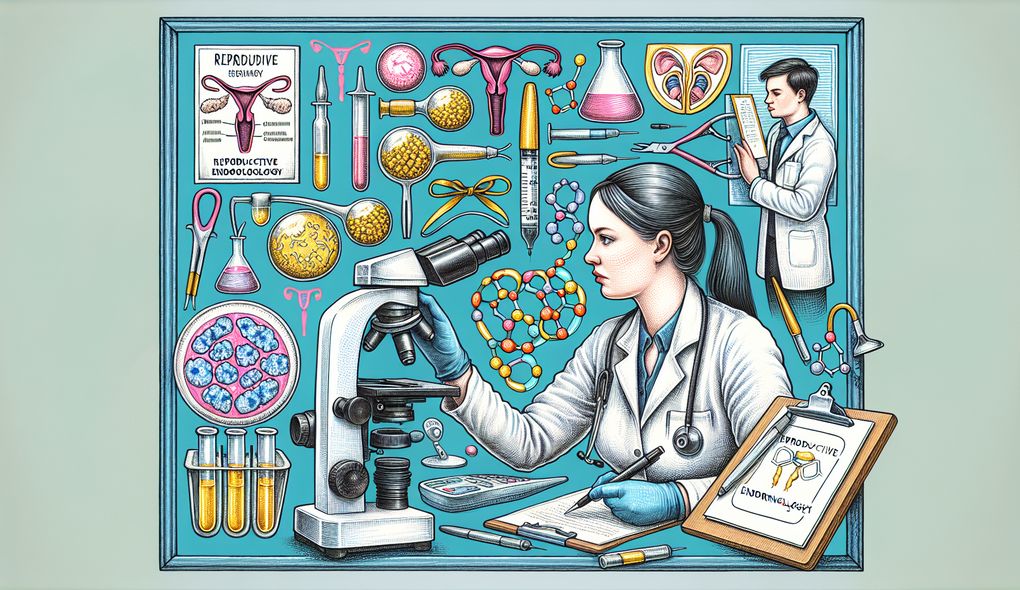Tell us about a time when you had to adapt to changes in fertility treatment protocols.
INTERMEDIATE LEVEL

Sample answer to the question:
I had to adapt to changes in fertility treatment protocols when I joined a new fertility clinic. The clinic had recently implemented a new protocol for ovarian stimulation in in-vitro fertilization (IVF) cycles. As a result, I had to learn the new protocol and adjust my approach to patient care. I worked closely with the clinic's reproductive endocrinologists to understand the rationale behind the changes and how it would impact patient outcomes. I attended training sessions and workshops to enhance my knowledge and skills. I also collaborated with the nursing and laboratory teams to ensure smooth implementation of the new protocol. Overall, the experience taught me the importance of being adaptable and keeping up-to-date with the latest advancements in fertility treatment protocols.
Here is a more solid answer:
One specific time when I had to adapt to changes in fertility treatment protocols was when a new medication for ovarian stimulation was introduced at the clinic I was working at. The change was implemented to improve success rates in in-vitro fertilization (IVF) cycles. To adapt, I familiarized myself with the new medication, attended training sessions, and reviewed current research on its effectiveness. I collaborated with the reproductive endocrinologists to understand the rationale behind the change and how it would impact patient care. Together, we developed a new treatment protocol based on the medication, adjusting dosage and monitoring strategies. As a result, we saw a significant increase in the number of mature eggs retrieved and the overall success rates of IVF cycles. This experience not only enhanced my proficiency in fertility treatment techniques and protocols, but it also strengthened my collaborative mindset by effectively working with a multi-disciplinary team.
Why is this a more solid answer?
The solid answer provides a specific example of a situation where the candidate had to adapt to changes in fertility treatment protocols. It includes measurable outcomes (increase in the number of mature eggs retrieved and overall success rates of IVF cycles) and highlights the candidate's personal contribution to the situation. Additionally, it addresses all the evaluation areas mentioned in the job description by emphasizing the candidate's expertise in reproductive health and hormonal disorders, proficiency in fertility treatment techniques and protocols, and collaborative mindset to work with a multi-disciplinary team.
An example of a exceptional answer:
A notable instance when I had to adapt to changes in fertility treatment protocols was when a new approach to ovarian stimulation in in-vitro fertilization (IVF) cycles was introduced in response to emerging research. The protocol involved utilizing gonadotropin-releasing hormone (GnRH) antagonists instead of GnRH agonists. As the lead reproductive endocrinologist in the clinic, I took the initiative to thoroughly study the research supporting the change and critically evaluate its potential benefits and challenges. I organized a team meeting where I presented the findings, discussed the rationale with the reproductive endocrinologists, and solicited their input. Together, we developed a comprehensive treatment protocol that incorporated the new approach while ensuring patient safety and optimizing success rates. Throughout the implementation process, I actively collaborated with the nursing and laboratory teams, conducting training sessions to educate them about the changes and foster a collaborative environment. The outcome of our efforts was remarkable, with a significant improvement in the number of high-quality embryos obtained and the overall success rates of IVF cycles. This experience further solidified my expertise in reproductive health and hormonal disorders, as well as my proficiency in fertility treatment techniques and protocols. It also showcased my commitment to patient care and the ability to adapt to evolving advancements in the field of reproductive endocrinology.
Why is this an exceptional answer?
The exceptional answer provides a highly detailed and captivating example of the candidate's experience adapting to changes in fertility treatment protocols. It demonstrates the candidate's leadership skills, expertise in reproductive health and hormonal disorders, proficiency in fertility treatment techniques and protocols, collaborative mindset, analytical and problem-solving ability, commitment to ongoing education and professional development, and excellent patient care and communication skills. The answer includes specific details such as the new approach utilizing GnRH antagonists, the candidate's thorough research and evaluation of the change, the collaborative process with the reproductive endocrinologists, and the measureable outcomes (improvement in the number of high-quality embryos obtained and the overall success rates of IVF cycles).
How to prepare for this question:
- Stay updated with the latest research and advancements in fertility treatment protocols.
- Develop a strong understanding of different fertility medications and their effects on patient outcomes.
- Foster a collaborative mindset by actively engaging with the multi-disciplinary team.
- Be prepared to provide specific examples of situations where you had to adapt to changes in fertility treatment protocols and describe the outcomes of those adaptations.
- Highlight your ability to analyze and critically evaluate research to make informed decisions.
What are interviewers evaluating with this question?
- Expertise in reproductive health and hormonal disorders
- Proficiency in fertility treatment techniques and protocols
- Collaborative mindset to work with a multi-disciplinary team

